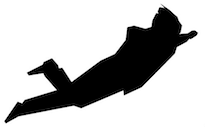Pidgin Tongue
Pidgin Tongue
Stine Marie Jacobsen
Aleksandra Berditchevskaia (Александра Бердичевская), Elza Caune (Эльза Кауне), Sofia Chasha (Софья Чаша), Toms Henrijs (Томс Хенрийс), Sabrina Krievina (Сабрина Криевина), Aleksandr Loce (Александр Лоце), Adrija Mauriņa (Адрия Маурина), Marta Prūse (Марта Прусе), Makar Podgornij (Макар Подгорный), Bogdan Podgornij (Богдан Подгорный), Anna Politiko (Анна Политико), Ruben Povilaite (Рубен Повилайте), Alise Rudzīte (Элис Руджите), Lote Skarnele (Лоте Скарнеле), Kate Skarnele (Кейт Скарнеле), Artemij Smirnovs (Артемий Смирнов), Evelina Tankovida (Эвелина Танковида)
Pidgin Tongue is a book, sculpture and workshop project by artist Stine Marie Jacobsen commissioned by the Riga Biennale 2018 and curated by Katerina Gregos.
Conducted as a collaborative and experimental writing workshop, where mother tongues will split, be re-welded and transformed into new (step-)mother/pidgin tongues through translation of idioms, mutation of words and new laws. During the workshop, children re-examine their relationship to both Latvian and Russian languages to create a dictionary for a new language through which they will stake their claim on a future for Latvian culture.
Pidgin Tongue draws on this vision from “the next generation” to develop a new “pidgin constitution” and make an absurdist monument sculpture for it - bringing attention to the fact that all constitutions are in essence arbitrary social constructs which enforce a normative set of “accepted” behaviours.
The title refers to the term "pidgin language", which is a simplified grammatical form of a language that can emerge between groups with different languages. Pidgin language can be built up of words, sounds and body language and the emphasis is more on co-created meaning to enable interaction. Pidgin languages have no native speakers and are thus not “owned” by any one group over another.
The purpose of Jacobsen’s project is to generate insight into the differences that arise in social recognition and perception in relation to the use of Latvian and Russian mother tongues. Pidgin Tongue will strive to create an environment where the children can feel some freedom from the weight of the social ideologies and existing stigmas of this highly politicised topic in order to define their own relationship to the two languages. The project gives meaning and shape to young people's dreams, fears and hopes for the future in Latvia, and comments on a shift in national empathy through an abstract review of the current constitution.
In the workshop playful exercises will turn pictures into language, break stereotypes, explain and explore proverbs, jokes and verbs while looking at emotional links to language, how to mirror yourself in others and how the children understand themselves as a nation. And exploring intergenerational family dynamics and possible clashes between languages in the home in relation to e.g. school life.
Imagine a flexible constitution which unites a cultural language split. The results of Pidgin Tongues’ explorations on this theme will be used for a publication and a co-created sculpture that incorporates the children's workshop output as a new system structure and constitution.
The sculpture is inspired by the transnational Abacus calculator and will carry the children's words on big movable cubes for the audience to interact with.
Stine Marie Jacobsen will work with native Russian speaker Aleksandra Berditchevskaia, an advisor on civil engagement and participatory science policy and knowledge transfer practices, to explore a deeper interdisciplinary perspective on the project and ensure contextual sensitivity in its delivery and potential legacy. Working together with local actors to develop new tools, exercises and other observations to inspire future work with the Russian and Latvian language and cultural conflict, the project will be maximally responsive to the inputs and needs of local teachers, Institutions and schools, throughout its implementation.


